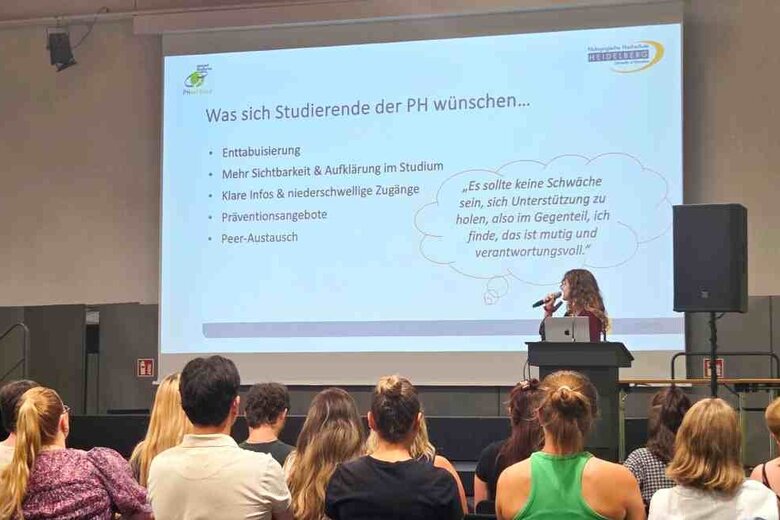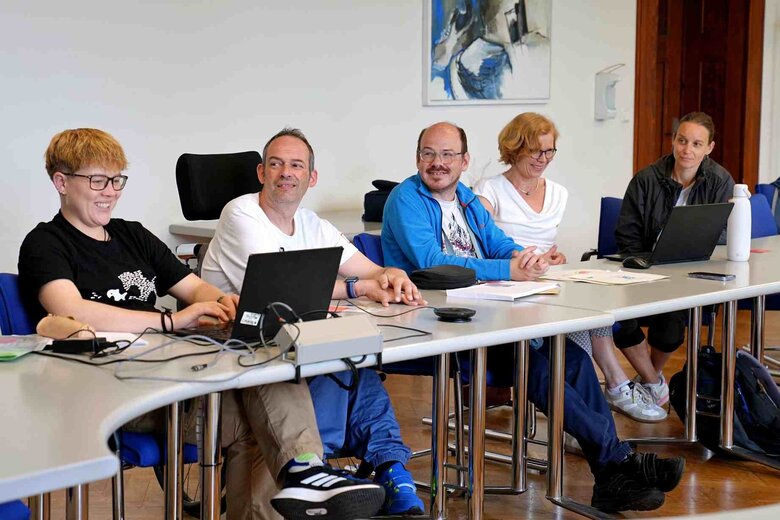Curiosity and initiative are at the centre of research-based learning: students develop their own questions, try out scientific methods and thus gain insights into the research process at an early stage. We promote this active form of learning as it strengthens critical thinking and enables students not only to absorb knowledge, but to shape it themselves.
Student teachers only talk about mental health problems in secret - after all, they don't want to jeopardise their tenure. Truth or persistent rumour? "I'm familiar with the topic myself from my own teacher training programme," says the student on stage. "And that's why we tackled it systematically." She is speaking in the Festhalle at Heidelberg University of Education (PHHD) on this day as a Master's student on the Education Sciences (BiWi) programme and therefore from a scientific perspective: in a study, her working group asked more than 500 fellow students at the university whether they would seek professional help if they were under psychological stress.
The timekeeper won't budge. "Five minutes of group work are up," announces education specialist Thorsten Lihl and the moderator moves on to the next item on the agenda. Nobody objects or reacts in a stressed manner - the research plenum knows the rules and works through the programme in a disciplined manner. Results are recorded immediately. Is everyone on the same page and in agreement? Anyone who needs clarification signals this with a red card. At the end of the meeting, the next steps are determined and feedback cards are used to reflect on today's meeting. It is a special forum that meets weekly at our university: researchers, students and education specialists from the Annelie Wellensiek Centre for Inclusive Education meet here regularly to discuss joint research projects.

